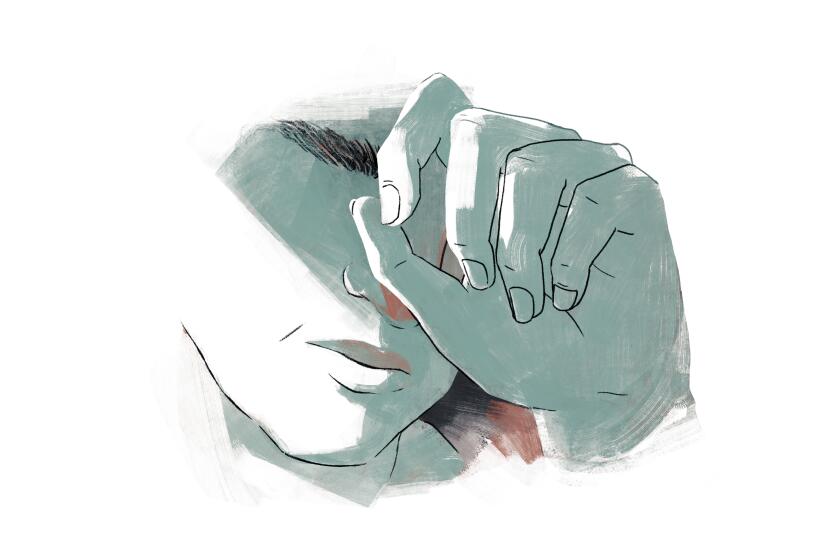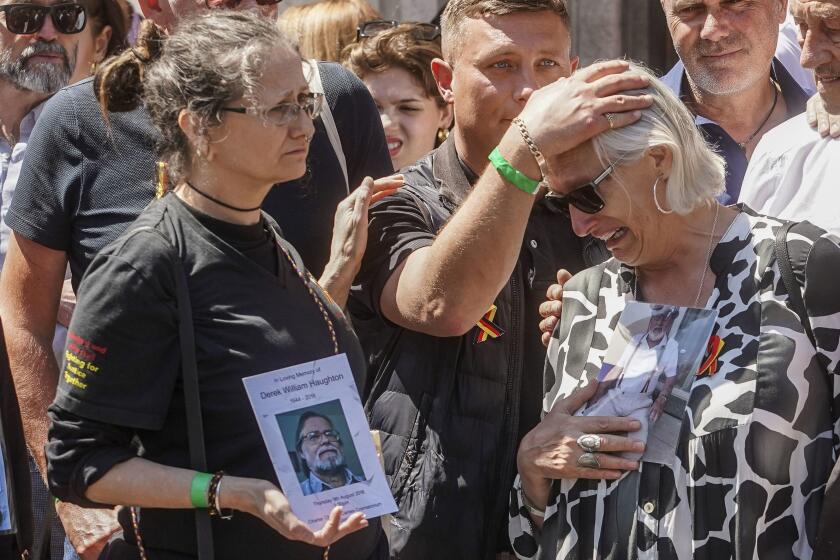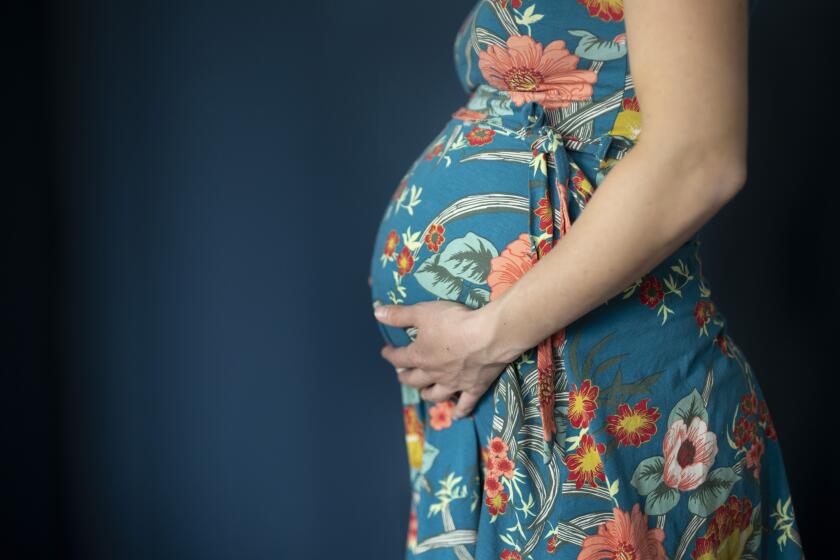Americans Need to Work Harder on That Shut-Eye Thing
If you’re half asleep as you read this, I’m not surprised.
A new study shows that Americans are not getting nearly enough sleep. Two-thirds of us fall short of the eight hours we need nightly for optimum functioning, and the average American adult gets fewer than seven hours a night.
According to the study, released this week by the Washington, D.C.-based National Sleep Foundation, we are working more and sleeping less than ever before.
“We’re leading the way among industrialized nations in piling up a sleep debt that takes a toll in every area of our lives,” says Dr. James Walsh, vice president of the foundation, a nonprofit group aimed at improving public health and safety by educating the public about sleep and sleep disorders.
“We’re less alert, more tense, more temperamental. . . . We’re finding it harder to get through the day.”
One-quarter of us have difficulty getting up for work at least a couple times a week. Almost one in seven say they’re late for work a few days each month because of sleepiness, and 4% skip work occasionally because they’re just too tired to go.
Almost one in 10 sometimes fall asleep at their desks, and more than one-third make a beeline for the bed when they get home because they can’t get through the evening without a nap.
Some employers have recognized the toll that sleepiness takes on productivity. About 16% of companies now allow workers to nap at work. Almost half of their employees take advantage of the benefit and work a siesta into their day.
Others are forced to catch naps on the sly. Some, like me, slip out to the parking lot at lunchtime to catch 40 winks in the back seat of the car.
*
The study coincides with National Sleep Awareness Week, which runs through Sunday. Not coincidentally, that’s the day we switch to daylight saving time, with its spring-forward ritual that denies the already sleep-deprived a much-needed hour of weekend snooze time.
But what, precisely, do the sleep experts expect us to do about our shut-eye shortfall? I don’t know anyone who deliberately deprives himself or herself of sleep. If I’m sleep-starved, it’s not my fault. Blame my boss, my kids’ teachers, the barking dog next door that keeps me up at night.
But Walsh considers that a cop-out, put forth by someone who just hasn’t made sleep enough of a priority. He argues we’re not just hostages to our responsibilities, but also to bad habits that sabotage our sleep needs.
“I talk to a lot of people who say they can’t possibly get eight of hours of sleep a night, and I inquire about what they do,” he says. “They say, ‘I just have to have time to myself to veg out,’ so they watch TV for an hour or they read for an hour.” In fact, the study showed that 43% admit they stay up later than they should because they’re watching TV or are on the Internet.
“I’m not saying those things are terrible, but that given the choice between getting enough sleep and watching TV, it seems like that’s a no-brainer,” Walsh says.
Walsh has structured his own life so that he gets his eight hours each night. “It sounds trivial, but I just decided it’s that important.” He sympathizes with single parents or split-shift workers whose unforgiving schedules dictate too little sleep. “But most of us just need to restructure our lives to respect our sleep needs. . . . When my children were old enough to stay up past 10, I just said good night to them at 9:30, and I went off to bed.”
*
Perhaps we haven’t made sleep a priority because we don’t understand the toll lack of sleep takes. And because sleep, in and of itself, isn’t much fun.
“The problem is sleep doesn’t provide immediate gratification like other recreational activities, like watching television or visiting with friends,” Walsh says. “Because you’re unconscious, it doesn’t feel pleasurable. If we could come up with a sleeping pill that could result in people feeling like sleep is entertaining, we would have everyone getting enough sleep.”
Short of that kind of medical breakthrough, what has to happen is both a cultural change and a personal commitment to more sleep.
“Being able to say, ‘I’m exhausted,’ has become a badge of honor,” Walsh says. “It’s a macho thing. There’s this idea that anybody who sleeps eight hours is lazy and can’t possibly be productive. So people brag, ‘I can get by on five hours of sleep or four hours of sleep.’
“But there’s a big difference between getting by and getting enough. Try getting up well-rested, after a few good nights of sleep. And see if you don’t know what I mean.”
*
Sandy Banks’ column runs on Fridays and Tuesdays. Her e-mail address is sandy.banks@latimes.com.



